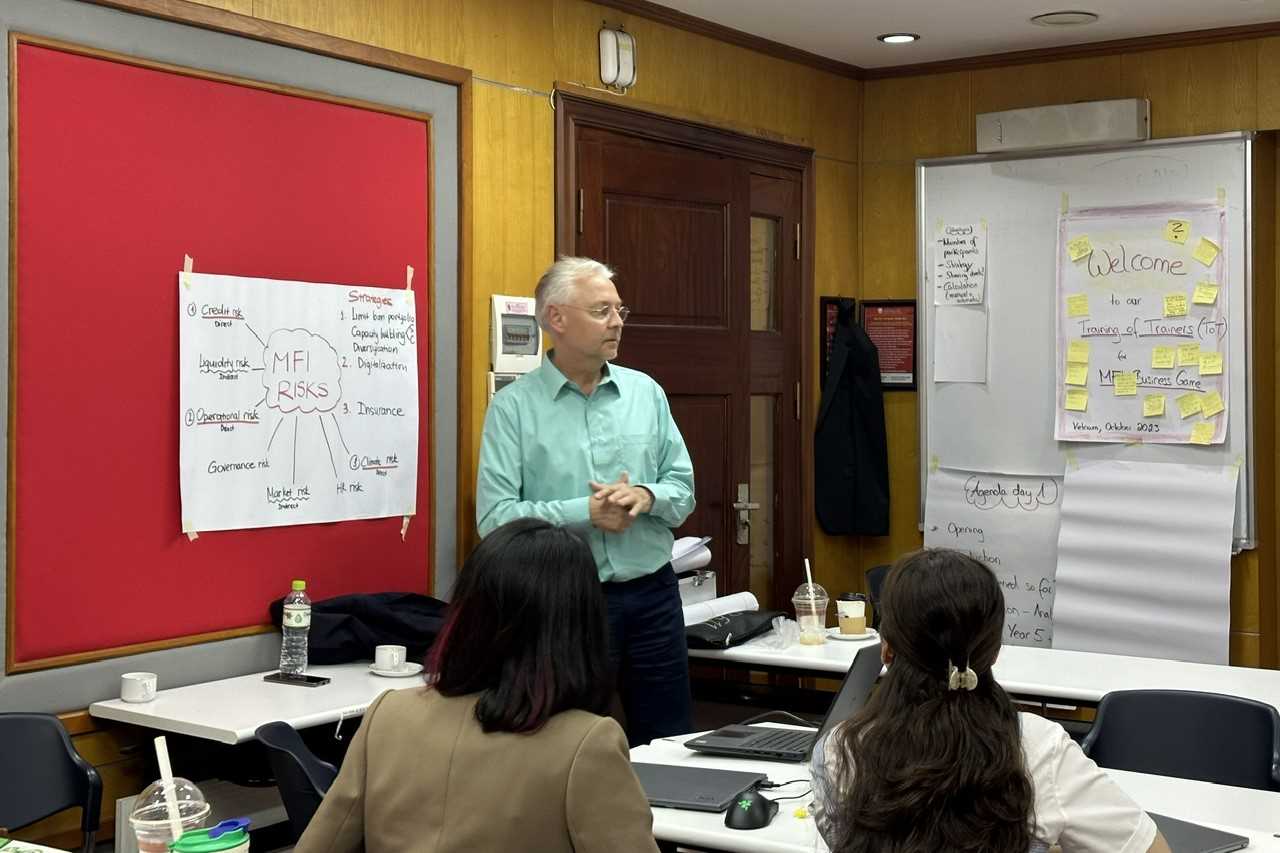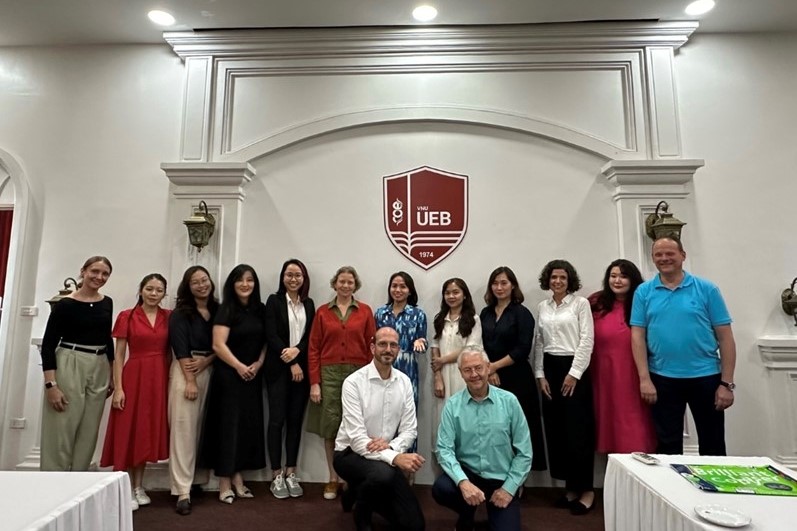In a collaborative effort with the University of Economics and Business (UEB) - Faculty of Finance and Banking (UEB-FFB), we recently conducted a comprehensive Training of Trainers for the Microfinance Institution (MFI) Management Game. This initiative aimed to equip lecturers from UEB-FFB with the skills to effectively integrate and utilize the simulation in their teaching curriculum. The training was facilitated by two esteemed experts from Germany, Michael Johner and Susanne Schuster, who provided invaluable insights into optimizing the software for practical and engaging presentations.
Enhancing Practical Education
The core objective of the program was to empower lecturers to guide students through the intricacies of the MFI Management Game. By transforming these lecturers into adept trainers, we are contributing significantly to enhancing the practical orientation of their courses.
Students participating in the simulation assume the role of a CEO of a small bank, making critical decisions such as setting interest rates, hiring and firing personnel, and making strategic investments in ESG, marketing, and IT. This immersive experience allows them to gain a firsthand understanding of the complexities involved in managing a financial institution.
A Contributory Milestone
We are delighted to have played a role in advancing the educational landscape at UEB-FFB. The collaboration has resulted in the university gaining access to a compelling tool that complements its already outstanding educational programs. By enabling lecturers to incorporate the MFI Management Game into their teaching methodologies, we are collectively contributing to the continuous improvement of the education provided by the University.
The successful collaboration with UEB-FFB exemplifies our commitment to fostering practical, experiential learning opportunities. We are proud to have facilitated the transformation of lecturers into adept trainers, empowering them to guide students through the challenges and decision-making processes inherent in the financial sector. This initiative stands as a testament to the positive impact that collaborative efforts can have on education and its ability to prepare students for the complexities of the real world.



